Simple Tips to Reduce Allergens in Your Home
This post may contain Amazon or other affiliate links. As an Amazon associate, I earn from qualifying purchases.
For many of us, sprigtime also mean allergy time. I never had to deal with allergies until Steve and I married. I don’t really have any issues and neither did anyone in my family, other than the occasional hay fever. Steve on the other hand, has skin allergies and is very sensitive to smells and Heather, our oldest, has eczema. Although my husband has never been tested, Heather was diagnosed by a dermatologist in her teens and we’ve learned a few things over the years that have helped both of them avoid breakouts and headaches.
Today I thought I would share some simple tips that can help reduce allergens in your home, in case you or someone in your family also suffer from allergies.
Table of Contents
Laundry:
In our case, laundry is the biggest issue. The laundry products we were using were causing eczema breakouts, rashes and the headaches from the dyes and scents. Now, I’ll be honest, I’m a HUGE scent lover, I love to wear perfumes and lotions that smell nice, I used scented candles and other products to make our home smell inviting and I love the smell of fresh, clean laundry. However, the scents and dyes in laundry products are what cause many people, including my husband and daughter, to develop laundry allergies.
here are some heathly laundry habits that have helped us manage skin allergies
- Always run new clothes through the wash. Make it a habit to wash new clothes before wearing, to remove excess dyes and fabric finishers that may cause skin irritation.
- Don’t use too much soap. The American Academy of Dermatology recommends that you only use the recommended amount of detergent.
- Try using liquid laundry products. Liquid products tend to leave fewer residues than powders.
- Use fabric softener. Studies have shown that clothes treated with a fabric softener have a potential benefit for people with sensitive skin.
- Don’t overload (or underload) the machine. Loading your washer with just the right amount of clothes means the laundry detergent will dissolve correctly.
- Rinse and repeate. It’s important to use your washer’s full rinse cycle to let the detergents rinse away from your clothes and avoid contact with your skin. Use an extra rinse cycle to make sure that everything comes out nice and clean.
- Be cautious when hand-washing clothes. If you’re washing garments by hand, be sure to allow the detergent to dissolve in the water and pay extra attention to rinsing well.
- Use laundry products made for sensitive skin. Hypoallergenic products such as Tide Free & Gentle, Downy Free & Gentle and Bounce Free are dermatologist tested and contain less allergens.
We have always been big fans of Tide, Bounce and Downy for our laundry, and I love that they now come in a Free & Gentle line that still delivers the cleaning power and softness that I want and love, with out the the perfumes and dyes that irritate my family’s skin. Each one is great on their own, but even better all together.
Bedding
Wash your bedding and blankets on a regular basis, once a week is ideal. Dust settles on your bedding just like it settles on the rest of your furniture. Don’t forget the blankets you use while watching TV…..especially if you let your pets snuggle on the couch with you 😉
How to Wash and Care for Pillows
Air
Finding the right level of humidity in your house is important. To help control indoor mold, use a dehumidifier or your air conditioner to keep your home humidity close to 50 percent. Allergy filters are now sold for vents throughout your house, along with an air purifier with HEPA (“high efficiency particulate air”) filter, to drastically reduce the dust, pollen, mold and bacteria in the air moving around your home. Use the exhaust fan when you shower. This will help reduce moisture and mold in your bathroom.
Dust & Vacuum
Dust then vacuum. I like to dust with a microfiber cloth and a light mist of vinegar water. This grabs the dust, rather than just push it around. Spray soft surfaces such as mattresses and sofas with fabric refresher every few days to cut down on dust and reduce allergens.
Vacuum on a regular basis, including upholstered furniture – be sure to use a HEPA filter, other wise you are releasing allergens back into the air. HEPA filters do help, but they don’t always mean clean air. Dyson vacuums are fabulous for allergen control, because they have a completely sealed system, only cleaned air is expelled back into your home. I know they cost more than most vacuums, but they are so worth it!! I own 2 of them, and have given 2 to my daughter as well…..we love them.
At least twice a year, pull the beds out and vacuum underneath.
Control Mold and Mildew
Clean the bath and/or shower often to help reduce mold. Along with regular deep cleanings, we keep a daily shower spray in the showers to keep them clean and mold-free as possible.
Hang wet/dirty clothes and towels to dry. Tossing damp clothes or towels into a hamper can cause terrible sour odors and begin mildew growth. Read my tips on how to remove mildew from towels and neutralize odors.
Pest Free
When most people think of allergy and “asthma triggers,” they often focus on plant pollens, dust, animal dander and stinging insects. However, one of the most common household pests – the cockroach – is one of the biggest offenders as a trigger of allergies and asthma. Remove water and food sources that may attract cockroaches. Lucky for us, my husband has his own pest control company, but if you see a cockroach (or rodents), get professional help. — t is estimated that one visible roach represents a population of a hundred roaches living in the walls!
What do you do to reduce allergens in your home?
Disclaimer: I have a working relationship with P&G. I have used and loved Tide, Downy and Bounce for years and was thrilled to partner with them to talk about my family’s allergies and their Free & Gentle line of laundry products. As always, all views and opinions are my own.
Tidymom is a participant in the amazon services llc associates program, an affiliate advertising program designed to provide a means for sites to earn advertising fees by advertising and linking to Amazon.com.
Please respect my work, recipes and photographs. If you do use a recipe in your own writing, please give proper credit and link back to the original post.

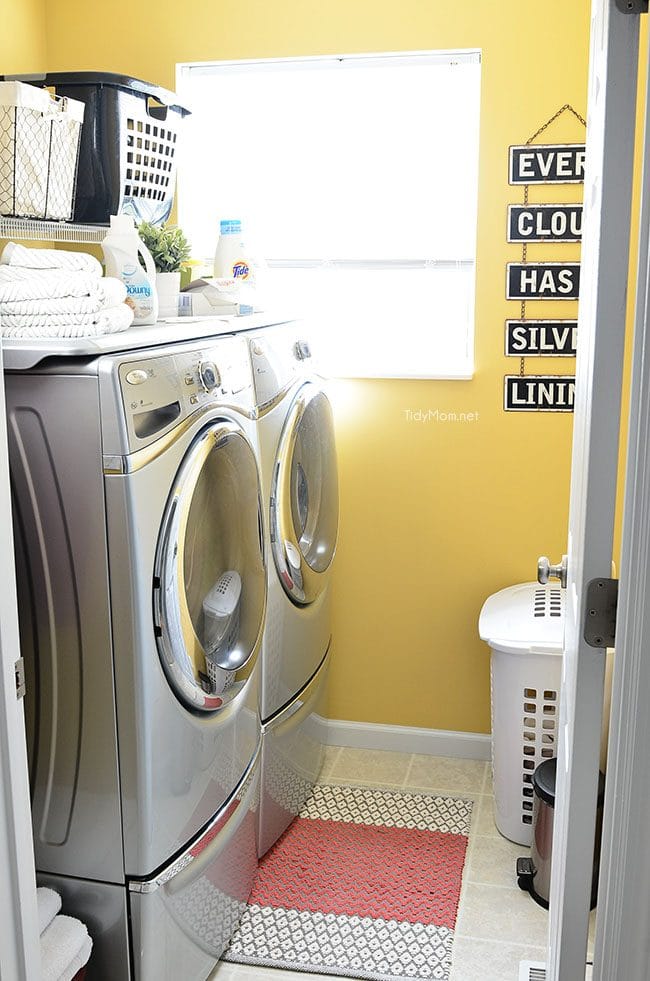
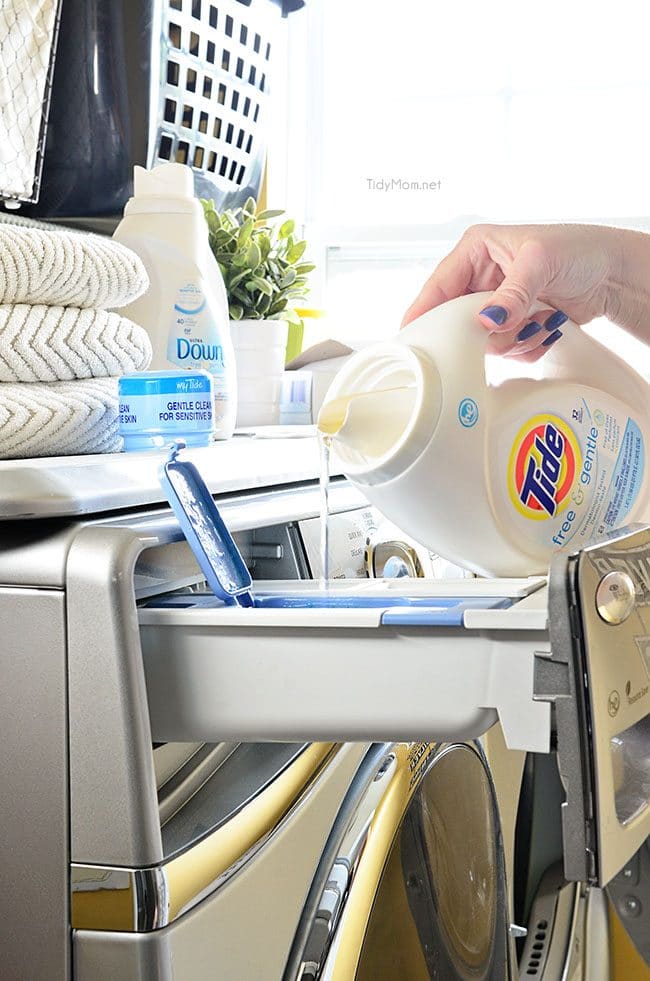
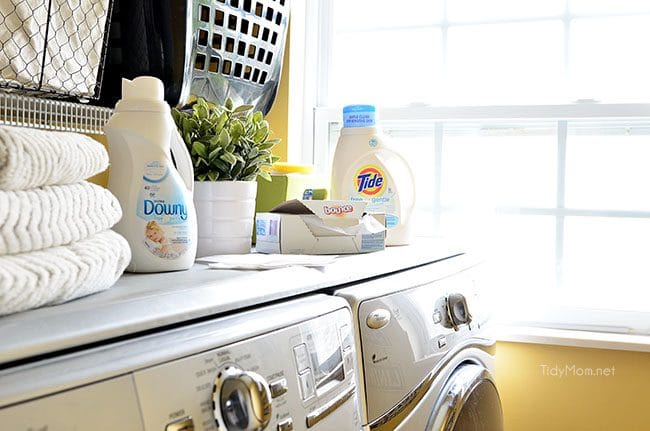
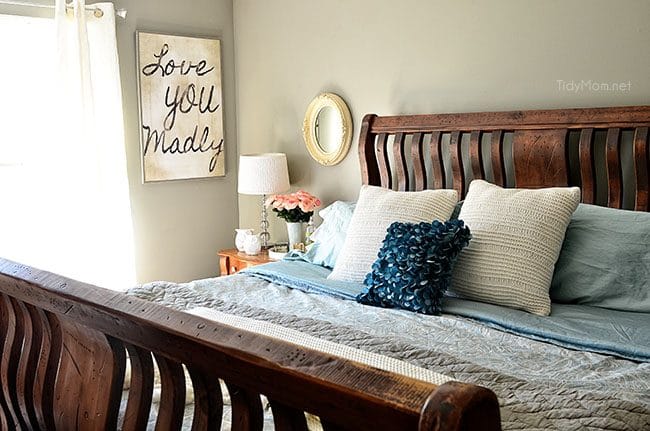
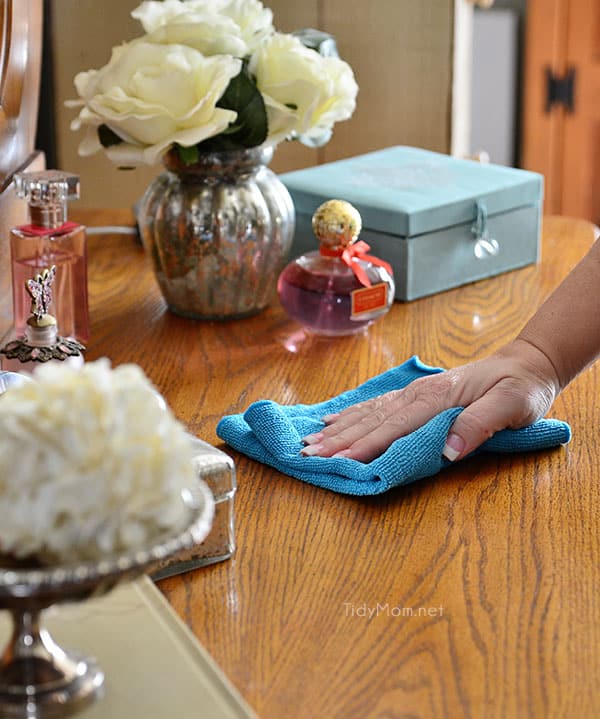
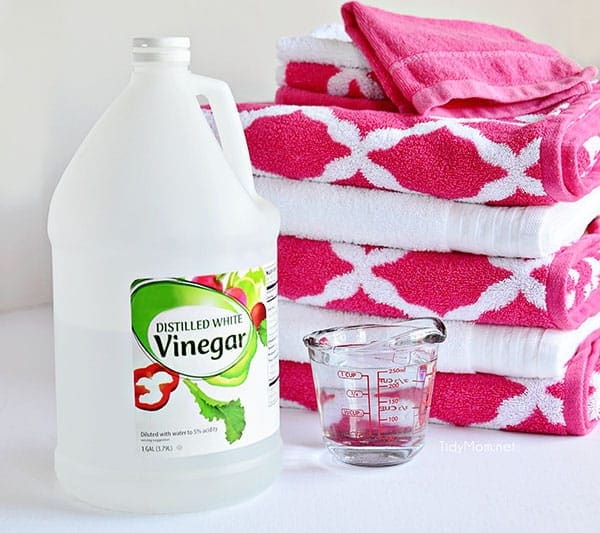
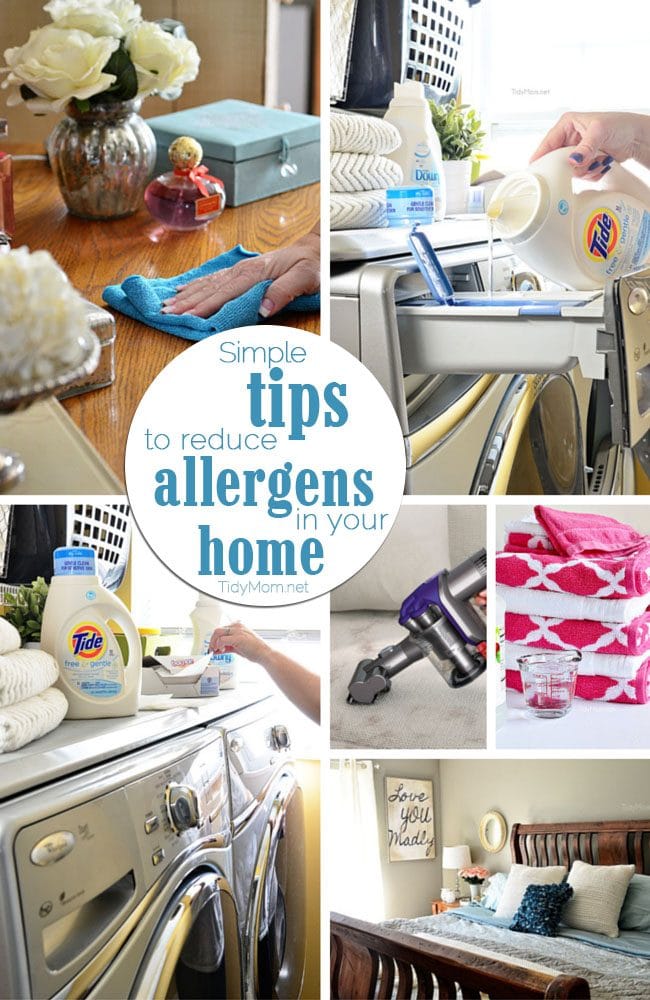

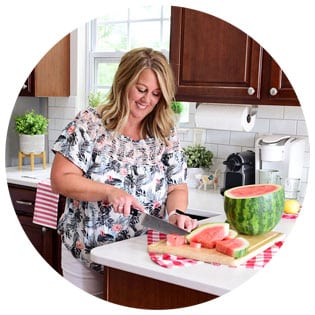
Bounce has always caused eczema problems with our family. I’m currently struggling with hand eczema. I have to wear gloves to do any cleaning, cooking, dishwashing.
Ah yes – my family suffers from these & laundry is a big one for them. Going to be switching detergent to see it if helps! Love your gorgeous light in your laundry room Cheryl- so lovely!!
Have a great weekend –
What is the shower spray you use? Is it store bought or something you make on your own? I enjoyed this article as one of my sons suffers from eczema and allergies.
they are store bought, I usually use Method Daily Shower or Scrubbing Bubbles has a daily shower spray as well.
I’m always looking for ways to reduce allergens in our home! Mine get so bad sometimes and I hate it! Love these tips!
Overall a very good article. However, I wouldn’t recommend fabric refreshers for anyone with bad allergies. They make me physically ill. And find the detergent that works for you. Among others, I break out from all varieties of tide, era, and dryer sheets. Surprisingly, I can only use unscented arm & hammer or Xtra.
I had been suffering from Allergies and Asthma for a long time, and i was looking for both natural and not-so-natural remedies, and so i bought an air & room cleaning system named HYLA, which is also a vacuum cleaner, because i read that this machine cleans the air inside your house and gets rid of allergens such as dust and pet dander. I can definitely feel the difference, i use it almost every day to clean my house, i really recommend this product. I also combined natural air filters like plants and beeswax candles. Awesome results.
These are great tips for allergy sufferers! I would add to the vacuuming section to have your carpets deep cleaned every once in a while. It really makes a huge difference in our home!